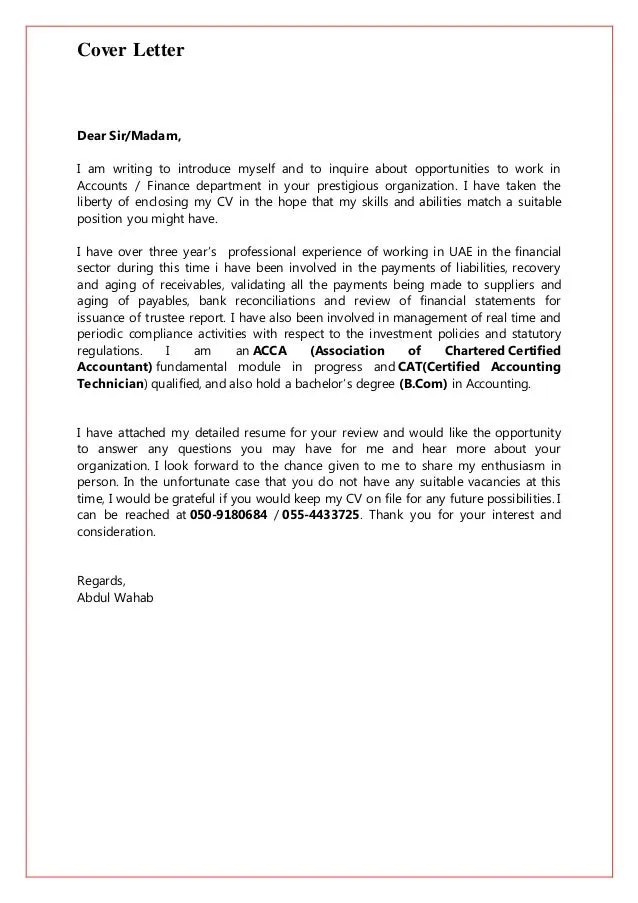Why Describing Yourself Matters in a Cover Letter
A cover letter is your first impression, and describing yourself effectively is crucial. It’s your chance to go beyond the resume and showcase your personality, skills, and how you align with the specific job and company. Think of it as an opportunity to tell a story about why you’re the ideal candidate. A well-crafted self-description sets the stage for a compelling narrative, helping you stand out from the competition and grab the reader’s attention. This section provides a crucial insight into why the cover letter is more than just a formality; it is a strategic tool to amplify your strengths and differentiate yourself in the competitive job market.
Understanding the Purpose of a Cover Letter
The primary goal of a cover letter is to introduce yourself and demonstrate your suitability for a particular role. While your resume lists your qualifications, the cover letter allows you to elaborate on those qualifications, providing context and explaining how your skills and experiences match the job requirements. It’s where you articulate your career aspirations and showcase your genuine interest in the position and the organization. The cover letter serves as a bridge between your past experiences and the future possibilities within the company, making it a powerful tool in your job search toolkit.
The Importance of Self-Assessment
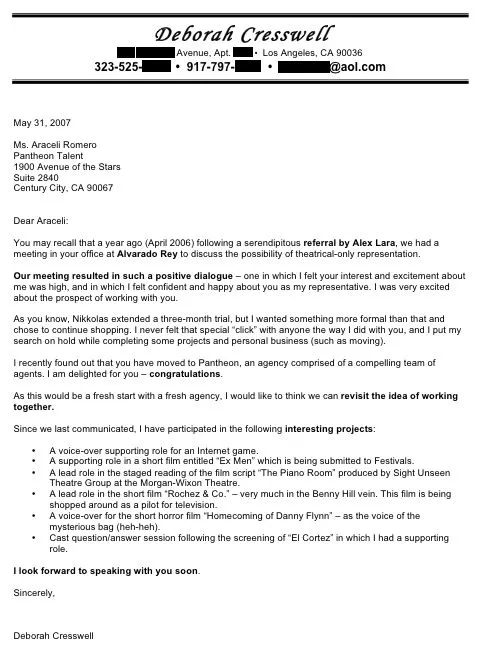
Before you start writing, a thorough self-assessment is essential. Identify your key skills, experiences, and accomplishments. What are you truly good at? What unique value can you bring to the company? Reflect on your past roles and highlight instances where you demonstrated those skills. Consider what you enjoy doing and what motivates you. Understanding your strengths, weaknesses, and career goals helps you tailor your cover letter to the specific job and express yourself in a way that resonates with the hiring manager. Self-awareness is the foundation of an effective self-description.
Top 7 Tips for Describing Yourself Effectively
Highlight Relevant Skills and Experiences
Don’t just list your skills; connect them to the job requirements. Review the job description carefully and identify the key skills and experiences the employer is seeking. Then, in your cover letter, provide specific examples of how you’ve used those skills in past roles to achieve positive results. Use keywords from the job description to demonstrate that you understand the position and its requirements. This targeted approach shows the hiring manager that you are a strong fit and can contribute to the company’s success.
Tailor Your Description to the Job
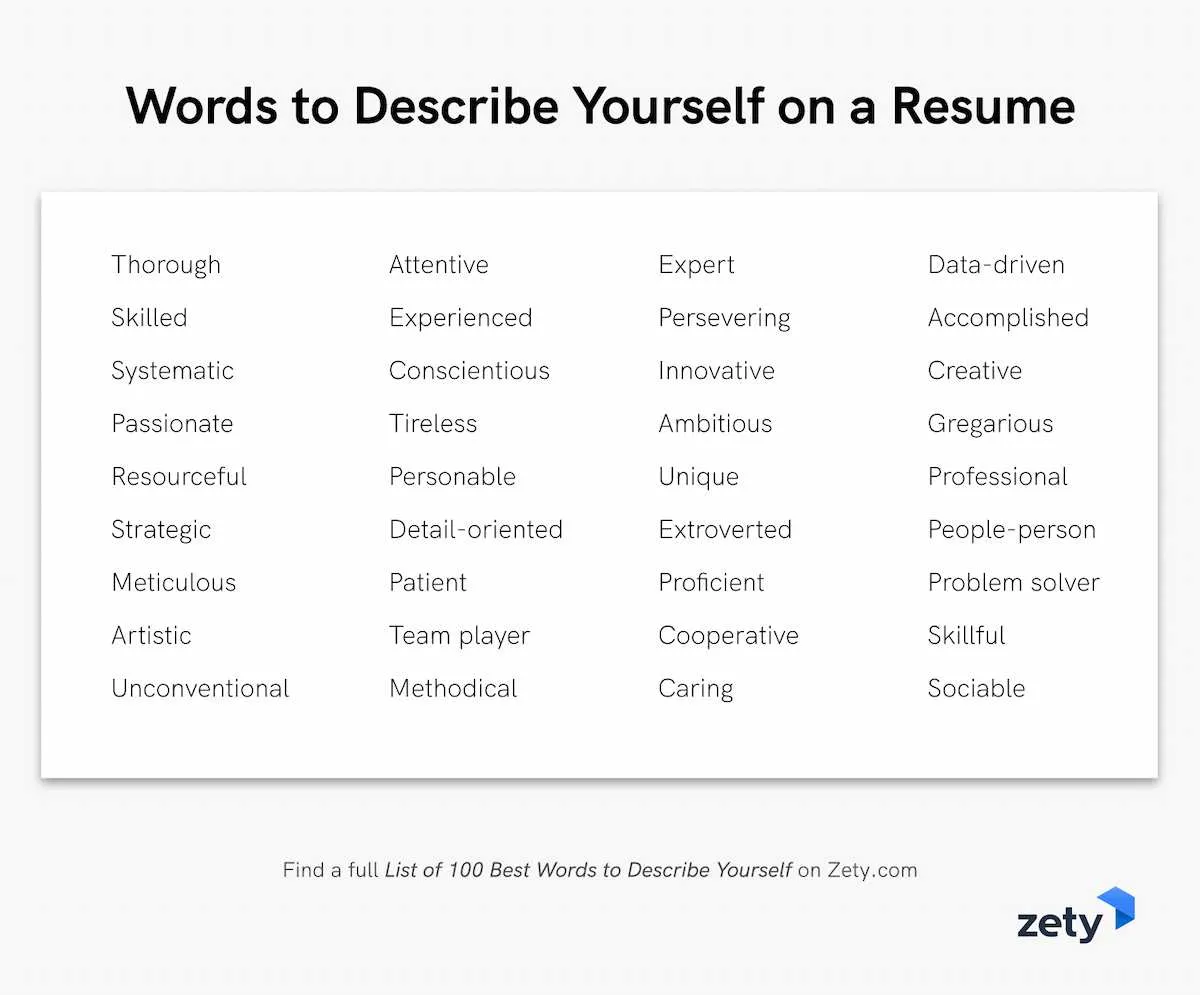
Avoid using a generic cover letter. Instead, customize each cover letter to match the specific job and company. Research the company, its culture, and its values. Then, tailor your self-description to align with these elements. Show that you understand the company’s mission and how you can contribute to its goals. This level of personalization demonstrates your genuine interest and makes a lasting impression on the hiring manager. Tailoring your description also shows you’re invested in the role and not just sending out mass applications.
Show, Don’t Just Tell
Instead of simply stating your skills, provide concrete examples that demonstrate them. For instance, instead of writing “I am a good communicator,” describe a situation where you successfully communicated a complex idea to a diverse audience. This approach adds credibility to your claims and makes your self-description more engaging. Use the STAR method (Situation, Task, Action, Result) to structure your examples and provide a clear picture of your accomplishments. Showing, rather than telling, makes your cover letter more persuasive and memorable.
Use Action Verbs
Start your sentences with strong action verbs to create a dynamic and engaging narrative. Action verbs like “managed,” “developed,” “implemented,” and “achieved” bring your accomplishments to life and showcase your abilities. They also make your cover letter more concise and impactful. Avoid passive language; instead, use action verbs to highlight your proactive nature and your contributions in previous roles. This active language helps you create a vivid and memorable self-description.
Quantify Your Achievements
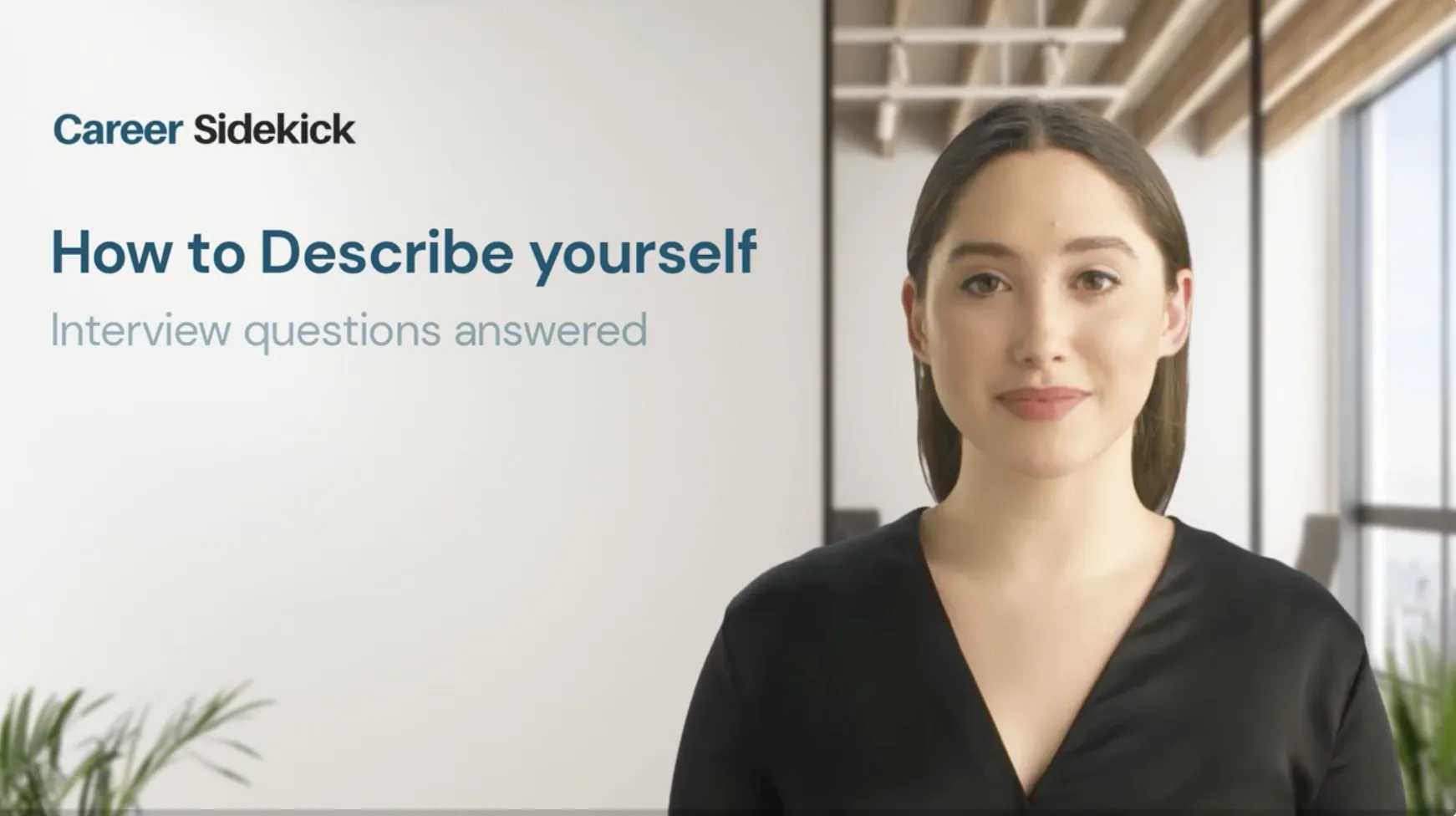
Whenever possible, quantify your accomplishments with numbers and data. For example, instead of writing “Improved customer satisfaction,” write “Increased customer satisfaction by 15% through implementing a new feedback system.” Quantifying your achievements provides concrete evidence of your impact and demonstrates your ability to deliver results. Numbers grab the reader’s attention and make your claims more credible. Use data to showcase the value you brought to previous roles and illustrate how you can contribute to the potential employer.
Focus on Value Proposition
Clearly articulate the value you bring to the company. How do your skills and experiences align with the company’s needs and goals? Explain how you can solve problems, improve processes, or contribute to the company’s success. Your cover letter should demonstrate what you can do for the company, not just what you’ve done in the past. Highlight your unique selling points and showcase how you’re the ideal candidate to fill the role and drive positive outcomes for the organization. The focus should always be on how you add value to the company.
Keep It Concise and Engaging
Hiring managers are busy, so keep your cover letter concise and easy to read. Aim for one page and use clear, concise language. Avoid jargon and overly complex sentences. Break up large blocks of text with bullet points or short paragraphs. Keep your tone enthusiastic and professional. Engage the reader from the first sentence by making it clear why you’re interested in the role and what you can offer. A well-written, concise cover letter that holds the reader’s attention is much more likely to make a positive impression.
Common Mistakes to Avoid

Generic Statements
Avoid generic statements that could apply to any job or candidate. Phrases like “I am a team player” or “I am a hard worker” are overused and lack impact. Instead, provide specific examples that demonstrate these qualities. Generic statements don’t differentiate you from other applicants. Focus on showcasing your unique skills and experiences to make a memorable impression.
Overusing Clichés
Clichés like “think outside the box” or “detail-oriented” are overused and often sound insincere. They don’t provide any real insight into your abilities. Avoid these phrases and use original language to express your strengths. Be authentic and genuine in your self-description. This originality will make you more memorable than the use of common, uninspired clichés.
Being Too Vague
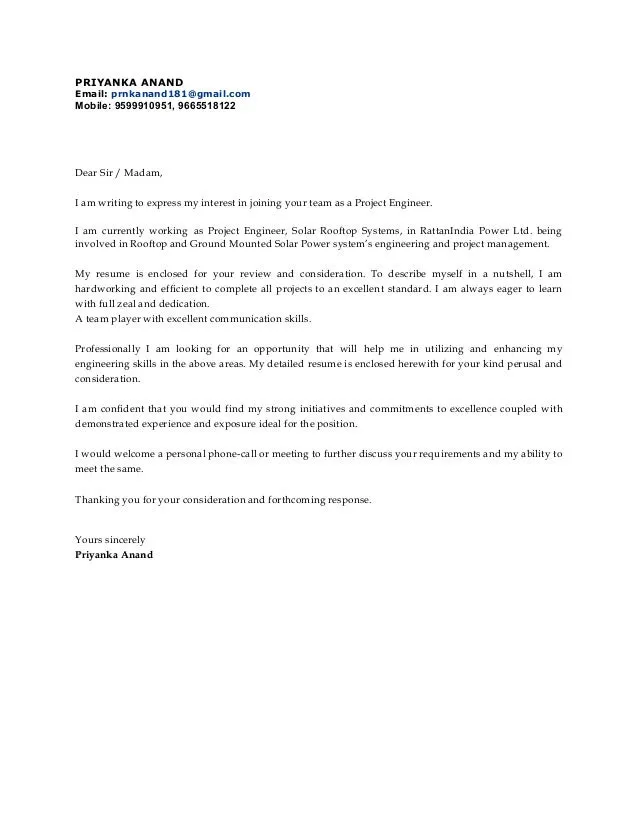
Vague descriptions leave the hiring manager guessing about your skills and experiences. Be specific and provide concrete examples to support your claims. Instead of writing “Managed projects,” describe the size and scope of the projects you managed, the challenges you faced, and the results you achieved. The more specific you are, the more impact your cover letter will have. Specificity creates a clearer picture of your capabilities.
Formatting and Tone
Proofread Carefully
Proofread your cover letter multiple times to catch any errors in grammar, spelling, or punctuation. Errors can undermine your credibility and make you appear unprofessional. Ask a friend or colleague to review your cover letter as well. A fresh pair of eyes can often spot mistakes that you might have missed. A polished, error-free cover letter demonstrates your attention to detail and your commitment to excellence. Proper proofreading is an essential step.
Maintain a Professional Tone
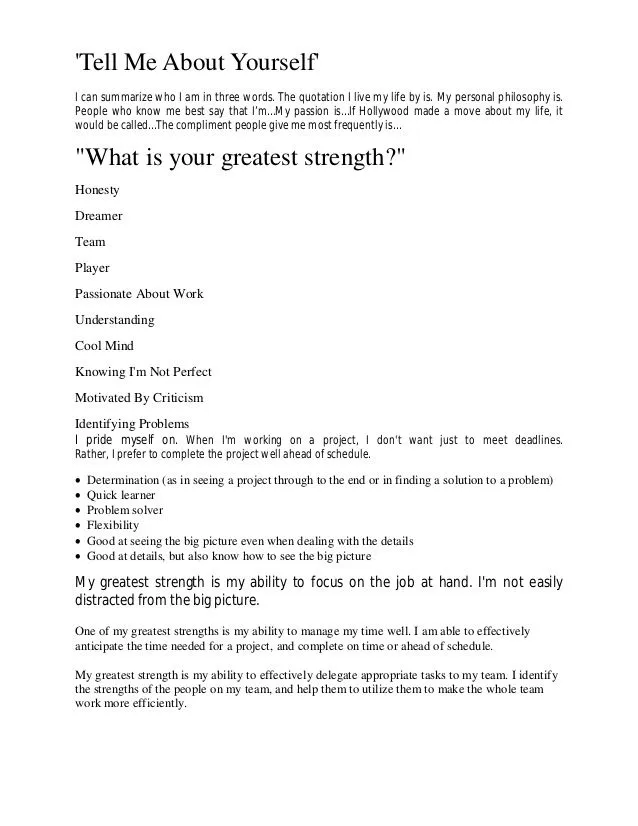
Use a professional and respectful tone throughout your cover letter. Avoid slang, informal language, and overly casual expressions. Your cover letter should be well-written and polished. Ensure your writing is clear and concise. Your tone should reflect your respect for the company and the position you are applying for. Maintain a tone that conveys confidence without being arrogant or overly familiar. The right tone can significantly enhance your chances of success.
Use a Clear and Readable Format
Use a clear and readable font, such as Times New Roman or Arial, with a font size of 11 or 12 points. Use appropriate spacing between paragraphs and sections to make your cover letter easy on the eyes. Avoid using excessive formatting or colors. A clean and professional format makes your cover letter more accessible and easier to read. A well-formatted document is an indication that you pay attention to the details.
Concluding Your Cover Letter
Conclude your cover letter with a strong call to action. Express your enthusiasm for the opportunity and reiterate your interest in the position. Thank the hiring manager for their time and consideration. Include your contact information, so they can easily reach you. Always express your eagerness to discuss how your skills and experiences align with the company’s needs. A strong conclusion leaves a positive lasting impression and encourages the reader to take the next step, which is to contact you.
